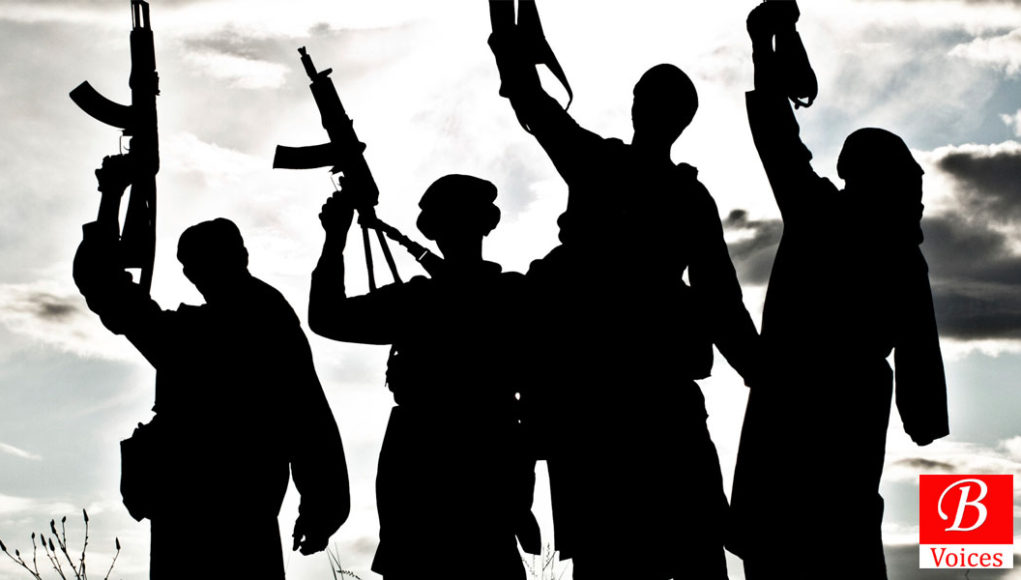Presently, the term ‘Extremism’ is mostly used as a label for conservative Muslims, as once used to define the characteristic of Catholic Christians. Though some very appropriately use this jargon with deep insight into its intellectual understanding but there are others, who are careless or less-informed about it.
It is a behavior or a state of mindset if defined in simple terms and any human may bear such state, whether political, ideological or religious. Some may justify that extremism is not harmful unless it becomes violent and action-driven, specifically at grass root level but it may be engineered into violent actions with organized planning by actions of professionals at a higher level and that is worth considerable concern, at least.
It would be incorrect and misunderstood if extremism is only taken for religious conservativeness rather it should be taken at a broader level, as a mindset.
Since 1979, Afghanistan is facing violent conflicts and though it could be based on many other factors but culture of extremism is providing a solid base to be manipulated for political, economic or strategic interests and its blowback is equally felt in Pakistan that influences it’s all aspects, including social life, due to influx and outflux on unmanaged borders and presence of Afghan refugees in the country and same is transmitted from Pakistani society to that of Afghan.
Extremism is also the reflection of an intolerant society of Pakistan and Afghanistan, not true for whole of the society but a substantial part of people obviously, which is not respectful to the views of others and struggles for the imposition of their own and is thus sometimes transformed into a very violent way, which does not fit to a pluralistic society of both the countries.
As the excess of everything is bad, extremism is then even the worst weapon to snatch harmony and prosperity of a society, whether based on ethnicity, sect, faith, ideology, culture, ultra-nationalism or any other form
In South Asia, Pakistan and Afghanistan are both facing the issue of extremism, which is common in most of the people on grass root level and can be manipulated with ease in an effective and efficient way for availing any sort of interest. Though there are many problems that can be jointly resolved or at least minimized but terrorism that has its roots in extremism, is an area of common interest for both the government and people of Pakistan and Afghanistan.
Afghanistan shares not only longest border with Pakistan but also many areas of common interest, in a positive sense that it may not appropriately tackle with the help of other countries but of Pakistan and the vice-versa. It is vital and utmost and that is not in favor of any one country only, rather for lasting peace process of both and for the regional peace, as well.
In this regard, community involvement is essential and without that, desired outcomes cannot be attained. From the research of academia to the teachings of religious clerics, from on ground efforts of civil societies to the continuous coverage by media and from the sports activities to the community exchange, all would be helpful to explore the causes and impacts of extremism and creating a germane and rational way forward for the steps that can be taken to combat it.
Any state of mind on its boiling point burns human skin equally but inculcation of a moderate approach, with tolerance and flexibility, can be the most effective counter-tool for extremism
Non-violent extremism is transformed into violent extremism, which is more organized and is done by specific organizations or interest groups but to fight that comes more under the horizon of counter-terrorism but for sustainable measures, there is a need to rationally uproot or minimize extremism of all kinds, whether by majority or minority without any discrimination, to have long-term peace and nurture a moderate approach in a historically diverse society of a globalized world.
Though some basic factors that lead to extremism, especially among youth, are highlighted immensely but a way forward seems missing, almost everywhere. There can be numerous alternatives to engage unemployed, uneducated and unaware youth and keeping aside the socio-economic factors that exert its frustration in adventurous extremism, ways to constructively involve youth can be still sorted out.
Engagement of youth in range of activities, sports, volunteerism, internships, youth exchange programs, technical skills, out-door tourism, entrepreneur trainings and such like others, can be promoted by the government with the collaboration of vibrant civil society, to prevent majority youth of both Afghanistan and Pakistan from entering the circles of extremism.
Empty mind is devil’s home and unengaged youth is terrorist’s raw material
Ultra-nationalism in both the countries that promotes hatred for the people of other is not in favor of any of them. Some of Afghans put all blame on Pakistan by scapegoating it for the prolong violence in their country without reaching on true facts and its adverse impacts on Pakistan, whereas many religious extremists in Afghanistan and even Pakistan are critical about Pakistan’s role in so-called war against terrorism with the United States since 2001, without submitting the historical facts.
Pakistanis also term Afghan refugees as unthankful and treacherous, which reflects their rude behavior and antipathy towards the suffering of Afghans and thus, this generates a gap between Pakistani and Afghan citizens and Afghan refugees in Pakistan and that has a negative impact on people-to-people relations.
This is true to much extent that policies during cold war era gave nursery to extremism but such situations should not be seen through today’s lens without mentioning the nature of people historically. Somehow, Afghan refugees’ experience in Pakistan has also contributed to this factor that has not been utilized for constructive outcomes. But at the same time, anti-Pakistani propaganda among Afghan youth and even among Pakistanis, to manipulate their existing anxiety, in order to suppress the question on the presence of foreign troops, which is still not capable to curb the threat, instead increase in terrorist activities in the last couple of years have been witnessed.
In Pakistan, educational institution like Peshawar University and civil society like Afghan Studies Centre, outreach of Centre for Research and Security Studies, have taken some steps to promote exchange programs among Pakistani and Afghan youth, whereas, some civil societies in Afghanistan like Afghan Justice Organization, are also involved in promoting moderate approach among their youth by robust community involvement. Though such initiatives are worth appreciable but these are insignificant if real challenge is analyzed at grass root level on the ground.
Diplomats and experts from both sides need to sit together and exchange their well-researched findings to plan a proper strategy to jointly counter extremism in Pakistan and Afghanistan.









